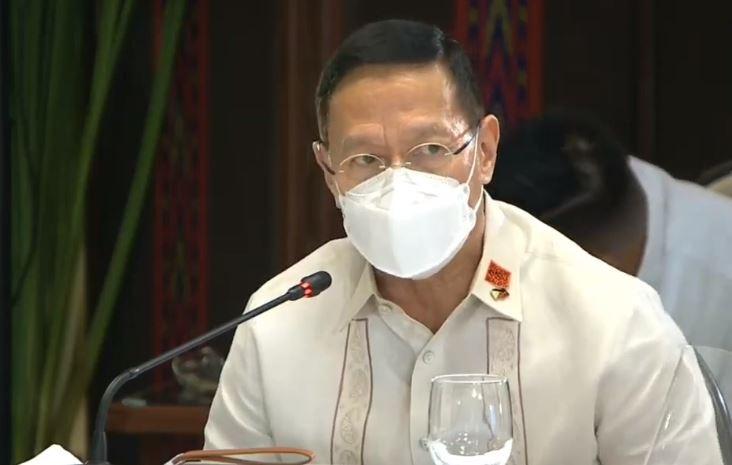Duque: No FDA-approved monkeypox vaccine yet

Health Secretary Francisco Duque III on Saturday said there is no vaccine against monkeypox yet that has been approved or authorized by the Philippines’ Food and Drug Administration (FDA).
However, Duque said the Department of Health (DOH) is now discussing with the World Health Organization (WHO) where the country can procure monkeypox antivirals in case of an outbreak in the country.
“Wala pang approval ng FDA natin, wala pang emergency use authorization. ‘Yan ang mga legal ng batayan para makapagpasok ng antivirals against monkeypox,” the Health chief said in an interview on Dobol B TV.
[There is no FDA approval or emergency use authorization yet. Those are the legal requirements to import antivirals against monkeypox.]
On Friday, the DOH, citing the WEHO, said the monkeypox vaccine is not yet widely available.
“The DOH is exploring all possible available sources and expedient legal methods for the procurement of Monkeypox vaccines,” the Health department said.
“At present, the DOH is preparing supply chains and logistics services. There are ongoing internal discussions, based on scientific evidence, for the possible acquisition of antivirals in the event of an outbreak or severe cases,” it added.
Duque, during the radio interview, said that he already tasked the DOH’s Pharmaceutical Division to cooperate with the Research Institute for Tropical Medicine and FDA to look for possible available sources of monkeypox vaccines.
The Health chief cited the possibility of using Imvamune or Imvanex vaccine, which has been licensed in the United States to prevent monkeypox or smallpox.
Duque also said that smallpox vaccines may protect against monkeypox due to “cross-protection.”
He said earlier that there is no need yet to close down the country’s borders.
The Philippines, however, has heightened surveillance and border controls to prevent the entry of the disease.
“Maraming paraan para maiwasan ‘yan [There are many ways to prevent it]: strict border control, strict symptoms screening, minimum public health standards,” Duque said.
May affect younger ones
The World Health Organization on Thursday said severe cases of monkeypox, a virus transmitted from animals to humans, may affect the younger age group more than others.
“Severe cases occur more commonly among children and are related to the extent of virus exposure, patient health status, and nature of complications. Underlying immune deficiencies may lead to worse outcomes,” WHO said.
Various countries in Europe, as well as Canada, the US, and the UK have reported cases of monkeypox, a virus that manifests, among others, as lesions of the skin not unlike chicken pox.
Dr. Marissa Alejandria of the DOH Technical Advisory Group on Tuesday said monkeypox is a viral zoonotic disease is endemic or locally acquired in Africa.
On Unang Balita Wednesday, infectious disease specialist Dr. Edsel Salvana clarified that contrary to its name, monkeypox doesn't come from monkeys. It comes from rodents and is passed on to humans and other primates, he said.
Individuals may acquire monkeypox through contact with an infected animal, contaminated animal products, infected people, and mother to fetus transmission.
Specifically, Alejandria said monkeypox may be obtained through unprotected contact with respiratory droplets, lesion material, body fluids, and contaminated materials and surfaces.
The virus may enter the respiratory tract, eyes and mouth, and broken skin.
Individuals infected with monkeypox will suffer from fever one to three days before they develop rashes, according to Alejandria.
For monkeypox, lesions often appear the same throughout the infection period while there are slight differences for chickenpox.
Isolation wards
On the part of private hospitals, Private Hospitals Association of the Philippines president Dr. Rene Jose de Grano on Saturday said they are already preparing their isolation wards and would conduct supportive treatment should monkeypox cases emerge in the country.
"What we will do is to isolate patients, which we have usually done. We have isolation wards," he said during the Laging Handa public briefing.
"Since this is a reportable case, this is a new case in the country, we will immediately report it to the DOH to determine our next actions. These are viral diseases, we will conduct supportive treatment for patients since there are no vaccines yet for these things," de Grano added. —With a report from Jamil Santos/KG, GMA News




